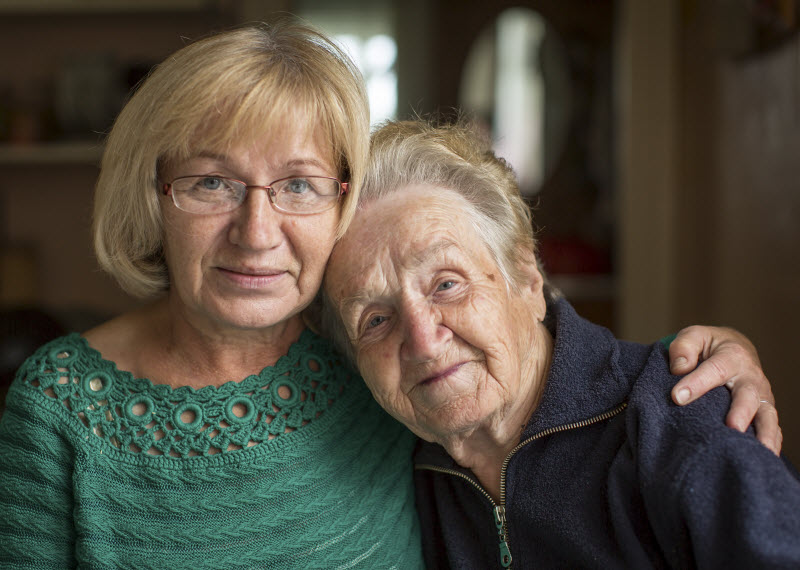What to do when a parent with dementia is refusing help

It is common for a person living with dementia to be in denial about the issues they are having with their memory and cognition.
While family members of people living with dementia will usually be able to understand the diagnosis, a lack of insight into what dementia does to the brain can impact the care their loved one receives.
It can be a particularly difficult situation to navigate when the person living with dementia is your parent, and they are refusing help. The sudden role reversal can be difficult for both parties to comprehend.
At Dementia Detailing, the individuality of each person living with dementia forms the essence of our services to them.
We understand that navigating a loved one’s dementia diagnosis and their new life stage can be difficult without the right tools, and it is our role to equip you with the skills needed to provide care with empathy and connectedness.
Our services are pre-emptive and create a tailored and positive experience for the person living with dementia so that they and their loved ones can enjoy their time together and achieve the quality of life they deserve.

Is your parent with dementia in denial?
One in 12 Australians aged 65 years and over develop a diagnosis of dementia, with a forecast of 1.1 million people living with dementia in Australia by 2058.
It can feel as if your world has come crashing down if you have a parent diagnosed with dementia and the change can be overwhelming both for the person living with dementia and their loved ones.
Despite what you may have heard, dementia is not a disease, but rather a collective term for a group of conditions that damage an individual’s brain cells.
That’s why dementia can include symptoms such as forgetfulness, irritability, personality changes and memory loss.
Family members may first notice parents with dementia are:
- Misplacing items
- Missing appointments
- Forgetting names.
All of these changes are hard to witness in the parent you know and love, and difficult to accept for the person living with dementia who can no longer think or remember things like they used to.
The good news is, while this situation seems impossible to navigate on your own, you are not alone.
At Dementia Detailing we centre our approach around personalised dementia care to promote positive experiences for those living with dementia, their families and healthcare providers.

How to help a parent with dementia
At Dementia Detailing our key point of difference is anchored in the way our services are grounded in evidence-based practice.
What we do know is that the brain has distinct regions that are responsible for different functions.
When cells in a particular region of the brain are damaged, that region cannot carry out its functions normally and this is when you will notice a decline in ability or memory for certain things.
But there are other parts of the brain that are very much alive and active while dementia is present.
While other care systems deliver services focused on the declining or lost abilities of a person living with dementia, Dementia Detailing works to harness the retained abilities of the person and the parts of their brain that are still agile.
An example of a retained ability that we integrate into our services is the connection with music and rhythm, especially music that was significant to the person living with dementia throughout their life.
What was it that was important and significant to your parent during their earlier life?
These interests or skills can be very significant when developing a personalised plan to not only improve the lives of those living with dementia but also their carers and family.
Some ways you can begin to open the conversation and broach the changes you are noticing in your parent with dementia include:
- Raising the topic calmly and gently – with kind and supportive words and tone
- Break larger issues into smaller ones – turning the focus of the conversation towards how to get help to manage the changes and methods for reaching out for extra help and support.
Ask us how our Dementia Care Consultant, Thean, can help your family to cope with a dementia diagnosis, help you gain clarity and experience peace of mind.

Coping with dementia in parents
At Dementia Detailing, we create tailored positive experiences for people living with dementia based on key retained abilities and emotional memories.
Emotional memories are the memory of experiences that evoke an emotional reaction, and which are accumulated over a lifetime and stored in the brain.
Triggers for these memories include different sounds, sights, smells, tastes and touches.
Our services tap into this resource in order to optimise the opportunity of triggering positive emotional memories.
Helping a parent to cope with dementia can be an anxious time, and the person living with dementia themselves may struggle with the stigma associated with their diagnosis.
Give your parent the time and space to process a dementia diagnosis and keep them involved with the steps you are taking to assist them to maintain their quality of life.
Some helpful support tools we suggest include:
- Keeping a diary of important dates to assist your parent to remember events and milestones
- Seeking early therapeutic support and assistance
- Seeking early advice on support groups for carers themselves
- Staying calm if raising a concern and offering potential solutions
- Being the bridge between your parent and the services that can best support them.
If you have recently had a dementia diagnosis in your family, reach out to Dementia Detailing today.
Achieving a strategic dementia plan starts with us, and our services help you find clarity and minimise the burden of a loved one’s dementia diagnosis.
Contact us today.

